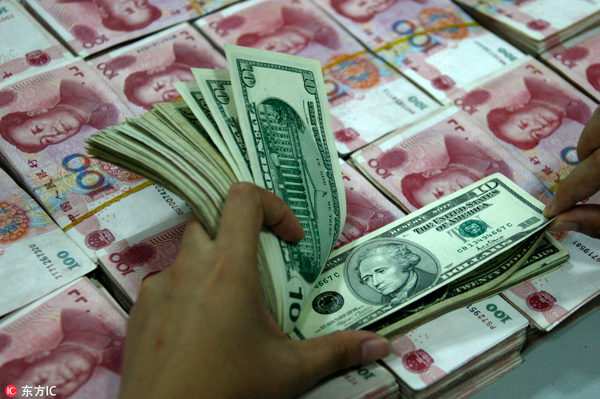Stability of RMB exchange rate guaranteed despite depreciation
21ST CENTURY BUSINESS HERALD | Updated: 2025-01-08 07:37

After experiencing a downward trend, China's renminbi exchange rate is showing signs of stabilizing.
Given that China and the United States' policies have entered a period of freeze, the market has paid particular attention to the renminbi's latest devaluation, with some attributing the trend to China's exchange rate policy, and a potential tariff conflict between China and the US.
However, the renminbi's recent depreciation was influenced by a strong dollar. The dollar index rose 0.7 percent to reach a maximum of 109.5 on Thursday, hitting a new high since November 2022, increasing the pressure on non-dollar currencies, with the euro and the pound depreciating 0.9 percent and 1.1 percent respectively, and the Asian currency index falling to its lowest level in two decades.
Therefore, the recent decline in the RMB exchange rate is a result of global currencies coming under pressure from the dollar index, and not because of a change in China's economic fundamentals. The renminbi's depreciation is not stark, but policy uncertainty has put it in the spotlight.
The incoming Donald Trump administration's plan to impose higher tariffs on China's exports has caused concern in the market.
As a result, the market is speculating. There is worry that if China's fiscal expansion is not strong enough, its economy will come under pressure, which will affect the RMB exchange rate; and if the country makes sharp cuts to interest rates, it will expand the net interest margin with the US, which will also affect the trend of the RMB exchange rate.
The Central Economic Work Conference last month has set a policy tone of expanding domestic demand in an all-round way in 2025, and for its smooth implementation more proactive fiscal policies and moderately loose monetary policies have been announced. Expansionary policies will inevitably bring China's economy to a more solid footing. Based on past experience, the market should not be overly concerned about China's capability to adopt flexible policies.
Although China's economy has suffered various shocks, the international competitiveness of Chinese goods has been greatly enhanced. A sufficient toolbox at the disposal of China's central bank, and China's economic fundamentals, import and export momentum, and foreign exchange regime are enough to help maintain the basic stability of the RMB exchange rate.
























